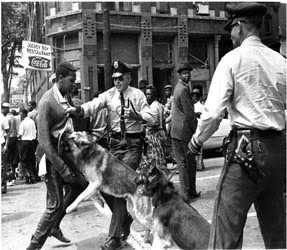- Go to NPR link for podcast on President Obama’s meeting with Law Enforcement officials and Civil Rights leaders.
- Benjamin Watson New Orleans Saints – on Facebook.
The events of Ferguson highlight a serious problem in the United States. For whatever reason (and the issues are wide and deep and grey) too many cops are killing too many American citizens. Many of these deaths are unnecessary. And consistently the victims are black and poor and often homeless or mentally ill. I’m not saying that I know what happened specifically with Michael Brown and officer Darrin Wilson in Ferguson, Missouri; I don’t. Maybe that is why I don’t have a passionate position on this incident. I do know that had there been organized response to the shooting death of Kajamie Powell, a few miles from the site of the Brown shooting, I would have found my way to Missouri. Maybe I should have just gone and initiated it; that was an absolute abuse of power. The response, which was non-existent should have been loud and long and hard.
While trying not to throw a blanket of blame on all of law enforcement (a large majority of police officers in this country do their job well), and not absolving the criminal element on our streets, nor dismissing the massive number of weapons available to it, nor the myriad of problems in many of our inner cities, some by choice and others by circumstance, something is structurally and morally wrong in our country.
Just like the criminal defense lawyers serving in Colorado Springs, the law enforcement officers are public servants – the police department fulfills the general welfare promise of the Constitution of the United  States. Cops are supposed to instill a sense of calm and confidence and support among the citizenry. They don’t instill that feeling for many Americans, particularly in urban minority communities. Too much abuse; too much unchecked power. Too many shootings. I know that when the police show up in third world countries they seldom instill a sense of confidence. Third world police are about corruption and unchecked brutality. Similar images of American policemen (accurate or not) are currently appearing on television screens and smart phones all over the United States. The last time that this country saw such a consistent abuse of power was in the 1960’s when white Southern police response to a nonviolent Civil Rights movement was brutal and out of proportion to community action.
States. Cops are supposed to instill a sense of calm and confidence and support among the citizenry. They don’t instill that feeling for many Americans, particularly in urban minority communities. Too much abuse; too much unchecked power. Too many shootings. I know that when the police show up in third world countries they seldom instill a sense of confidence. Third world police are about corruption and unchecked brutality. Similar images of American policemen (accurate or not) are currently appearing on television screens and smart phones all over the United States. The last time that this country saw such a consistent abuse of power was in the 1960’s when white Southern police response to a nonviolent Civil Rights movement was brutal and out of proportion to community action.
Nothing so serious is ever so simple. So let us tread lightly…but let us tread.
I’m not really sure how to move this conversation forward – but we do need to have it, so here’s my idea. For the next three days while we watch The Lives of Others (a film about East German Stazi and Cold War human rights abuses) I want you to do some exploring. Many recent incidents involving the police and American citizens have resulted in a question involving an abuse of power. Google the issue. Dig deep. There are a lot of them out there…we need to see if we can find any common denominators. I don’t care how far back you go; maybe this thing isn’t time related. It does not matter to me if the officer (s) in question was eventually found to be guilty or innocent of inappropriate actions. Nor does it matter to me if the victim was an innocent bystander or a criminal (accused or convicted). Nobody has to have died as a direct or indirect result of the incident. I just want to you to find a situation that in your mind seems out of line with normal police procedure. The event must have occurred in the United States.
Email me the name of the players involved…or if the event goes by another name give me that. Provide the state and the date of occurance. I would like you to work with a partner – so give both student names. Make sure that after you find your topic that you pull all related news and video clips and educate yourself thoroughly on your chosen issue. We will collectively set up the parameters for study and sharing.
Assignments – First come / First served:
By Thursday PM this list should be complete.
- Tamir Rice / Cleveland – Brieanna Ferguson & Ivy Lewis
- Jordan Miles / Pittsburgh – Kaitlyn Mclain & Kendall Vogel
- Santiago Hernandez /NYC – Paula Shay and Travis Dalum
- John Wrana Jr / Chicago – Ashley & Melinda
- Jonathan Ferrell/North Carolina – Anna & Jackie
- Milton Hall / Michigan – Helena & Tyler
- Sean Groubert / South Carolina – Maria & Petra
- Amadou Diallo / NYC – Madeliene Stenholm
- Anthony Owens / Wilsey – Shelbie & Elisabeth
- Keith Vidal / North Carolina – Sara & Sarah

















































































































